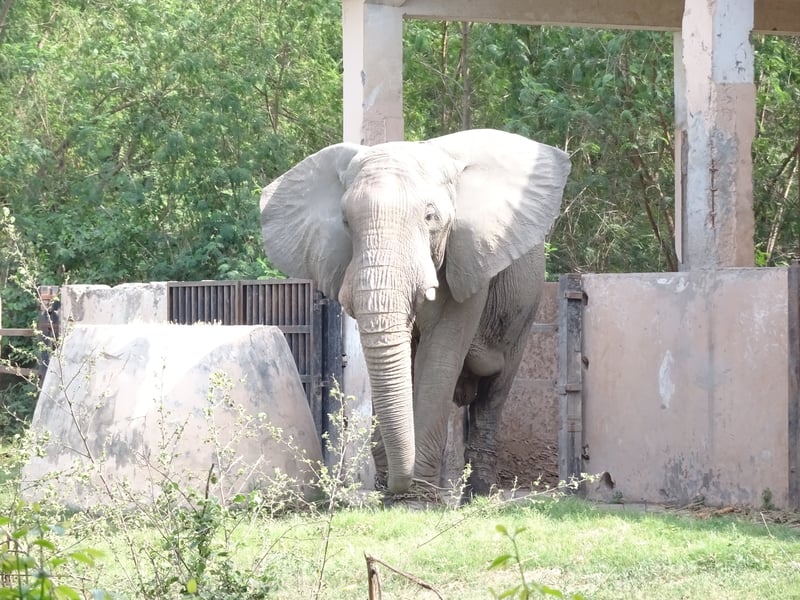
I first saw Shankar, the African Elephant in 2000 in Delhi Zoo when he was in the company of his companion Vambai. It was a novel experience for me to watch African Elephants in India.
Very few zoos have kept African Elephants in India, Guwahati Zoo in Assam had two African Elephants in the eighties and early nineties, Mysore Zoo had three African Elephants and now has only one male, Rambo, Reliance Greens Zoo in Jamnagar has several African Elephants and Delhi Zoo had Shankar and Vambai. Both Shankar and Vambai were gifts from the government of Zimbabwe to the former President of India, Dr Shankar Dayal Sharma in 1998, after whom Shankar was named. I observed him alone after the death of his mate Vambai in 2001. I was always saddened by his solitary state given that African Elephants are social and gregarious animals, and share many emotions exhibited by humans, like pleasure, pain, anger, bonding with relatives and emotions on death.
A lonely plight
I wrote about his plight in the Indian Zoo Inquiry in 2004 and was also part of the endeavour that tried to send him back to Africa led by the Aspinall Foundation in England and supported by World Animal Protection in India. This would have been among the first genuine attempts to rehabilitate a captive zoo African Elephant to the wild, in consonance with the effort of the Aspinall Foundation to release their entire herd of captive African Elephants from Howletts Zoo in Kent in England to Kenya. Sadly, this endeavour did not come to fruition as the court case to free him from the clutches of Delhi Zoo failed. Shankar, the African Elephant displayed very severe signs of stereotypic behaviour in captivity in Delhi Zoo, combined with aggression and a whole host of maladies associated with his lonely status in captivity.
Doomed to death in captivity
Repeated requests to integrate him with other captive African Elephants failed, and Shankar ultimately died a pathetic death, a broken shadow of what would have been his natural wild self. Shankar’s death on 17 September, 2025 reminds us of our duties to captive elephants everywhere, starting from the captive elephants offering joy rides at Amer Fort in Jaipur in Rajasthan to temple elephants in Kerala and captive elephants in zoos everywhere, and this concern extends to both African Elephants and Asian Elephants. I hope the example of Shankar the African Elephant in Delhi Zoo will encourage the government to recognize that elephants are not suitable for a captive existence and they belong as wild animals to the wild. Wildlife belongs in the wild.
Shubhobroto Ghosh, Wildlife Campaign Manager, World Animal Protection, author of the Indian Zoo Inquiry and the book, ‘Dreaming in Calcutta And Channel Islands.’
Photo credit - Shubhobroto Ghosh